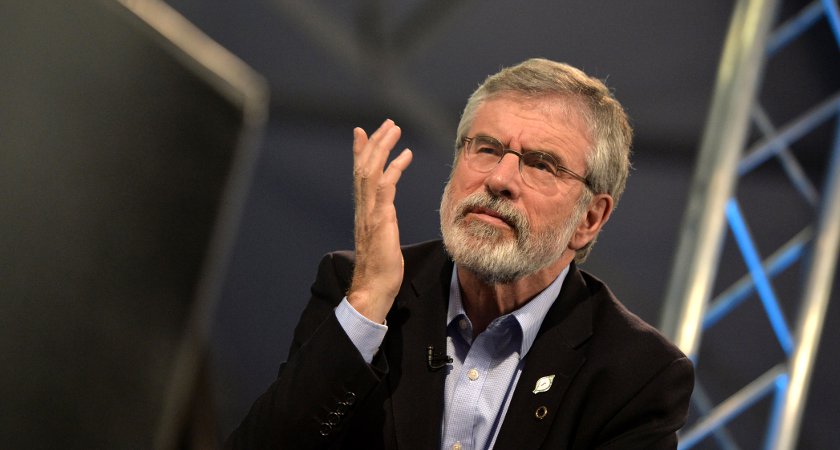MICHEÁL Martin, leader of Fianna Fáil, has said that the UK’s Brexit vote could eventually lead to a referendum on a united Ireland.
Delivering the John Hume lecture at the MacGill Summer School in Donegal, Mr Martin spoke of Europe being in “a new age of uncertainty”. In a wide-ranging speech he also reiterated his solidarity with France in the wake of recent terrorist attacks.
In attempting to explain the reasons for the current unpredictability of politics, Mr Martin spoke of complacency after the ending of the Cold War. In the years following that seismic change in world politics it became far from clear what would replace it.
The Brexit vote is only the latest evidence of that uncertainty, one with huge implications for Ireland. Mr Martin told the MacGill audience that the referendum was a “defining moment in Northern politics”.
He said:
It may very well be that the decision of Northern Ireland to oppose the English-driven anti-EU UK majority is a defining moment in Northern politics. The Remain vote may show people the need to rethink current arrangements. I hope it moves us towards majority support for unification, and if it does we should trigger a reunification referendum.
But Mr Martin is aware that the demographic of the North must be considered as well. 65 percent of the population of the North voted to remain; this figure included many unionists who were evidently not voting for a united Ireland.
Mr Martin acknowledged this saying: “At this moment the only evidence we have is that the majority of people in Northern Ireland want to maintain open borders and a single market with this jurisdiction, and beyond that with the rest of Europe.
 The Sinn Fein leader Gerry Adams is also using Brexit to renew calls for a united Ireland (Picture: Getty Images)
The Sinn Fein leader Gerry Adams is also using Brexit to renew calls for a united Ireland (Picture: Getty Images)But many dangers lurked because of the EU referendum result. “The Brexit vote has added a new risk. It threatens to set back a model of shared development, which in spite of many problems, has achieved a lot and could achieve much more.
“The introduction of new barriers between both parts of this island would potentially set us back decades.”
The situation in the North needed to be addressed urgently, according to Mr Martin, and the ‘hands-off detachment of recent years’ curtailed. He said: “It is a sad reality that our government and our media have tended to ignore Northern Ireland except when there is a crisis. Meeting the challenge of Brexit is a moment to end this and also to begin rebuilding public faith in politics.”
Mr Martin also spoke of the xenophobia that the Brexit vote had unleashed. “England is not an extreme country, but there was a dark and unsavoury side to the anti-EU advocacy which helped deliver the England-based majority for the UK to leave the EU. We saw the classic scapegoating of an “other” or a “them” who could be blamed for all discontents.”
Mr Martin is aware that many obstacles stand in the way of a resolution to the Brexit problem with regards Ireland. “The challenges for us,” he said, “are more complex than ever before. But history teaches us that the cost of failing to meet these challenges is profound.”

